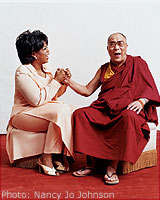 Questions powerfully connect us to each other helping us to form new friendships, levels of intimacy, and understanding in relationship. Questions, quite possibly, may be some of “the most influential aspects of our speaking, thinking, and listening,” states Marilee Adams, PhD. and founder of the Inquiry Institute.
Questions powerfully connect us to each other helping us to form new friendships, levels of intimacy, and understanding in relationship. Questions, quite possibly, may be some of “the most influential aspects of our speaking, thinking, and listening,” states Marilee Adams, PhD. and founder of the Inquiry Institute.
Learning how to ask questions in a way that masterfully connects you to the important people in your life is a critical skill and one that will serve you well. By learning to ask questions powerfully, you hold the key to understanding, learning from, and influencing others. There is no better example that demonstrates the power of questions to influence and draw people together than the Oprah Winfrey Show.
Oprah masterfully demonstrates the ability to use questions to elicit the personal life, stories, and advice of some of the world’s most interesting public figures, leaders, and experts. Drawing a viewership of 7.4 million people, within the US alone, Oprah’s show aired for over 20 years.
What does Oprah know that you and I don’t? How does she masterfully use questions to draw people out of themselves and share their most intimate selves? Drawing upon Oprah’s expertise, here are two key attitudes to help you masterfully connect to the important people in your life.
Attitude #1: Nonjudgment. Oprah once shared, as a professional interviewer, that one of the most important things for her to focus on during the interview is holding a space of nonjudgment. Oprah is so in tune with the inner workings of successful interviewing, she knows that the moment she starts judging, the interviewee will subconsciously feel it and shut down. At this point, as Oprah described it, the interview is over.
The viewers sitting on the edge of their seats will not get the juicy tidbits they tuned in for if Oprah shows up with judgment. Now, when Oprah shows up genuinely curious, her guests relax becoming an open book. Take for example, the Oprah Show where Oprah interviewed women serving time in prison for murdering their children. First off, can you imagine the tension surrounding this type of interview? Behind the scenes, before the interview, Oprah humbly reveals her discomfort and natural feelings of judgment towards the women she is about to interview. She relies on every resource from her training and approaches the interview from a place of nonjudgment.
Oprah’s success with this technique allows some of those she interviews, who feel her openness, to experience a deep healing from the inside out, perhaps feeling a momentary reprieve from the intense hate and judgment they are so familiar with receiving. The result is that some of the women candidly reveal their darkest moment, lunacy, and the path leading up to their horrible acts of crime. This act of vulnerable truth telling generates connection with viewers, Oprah’s goal; and Oprah has achieved her objective once again.
How can you hold nonjudgmental energy when asking questions in a high-tension environment or situation? What would be the value of being nonjudgmental?
|
Practicing Nonjudgment: A Simple Five-Step Practice Judging creates fear and separation. To practice nonjudgment is to create a space for connection and love. Try this simple five-step practice.
|
Attitude #2: Humility. Do you see yourself as having all the right answers? If so, you may be missing out on a large part of life. Listening with humility, to the perspectives of other people, is where many new discoveries can be made. Shifting from a know-it-all mindset to one of openness can help you learn more about the feelings, understandings, and viewpoints of others.
Humility is an antidote to judgment. Remember the popular phrase “Don’t judge a book by its cover?” It works. If you are looking to connect more deeply with people, realize there is a lot more to a person or a situation than meets the eye. Encourage yourself to adapt a modest and respectful stance; it will help draw out feelings of unity and connection.
An attitude of humility helped me significantly one year when getting to know a new client. I met my client in person and immediately liked him. I felt he was smart, caring, and a highly intelligent person. After our first meeting I thought I would do some Internet research to see what I might learn that would help me improve my service and build more rapport with him.
Very unexpectedly, the top results to my search sent me to a front- page article in the NY Times with a headline very negatively highlighting my client. I was shocked. I read the article and couldn’t believe they were talking about the same person I had met. I suspended judgment, adapted an attitude of humility, and decided not to judge a book by its cover and never mentioned a word to my client about the article. Weeks later I learned the true story, which was not relayed in the article. Boy, was I glad that I adopted an attitude of humility. To this day, he is one of my favorite clients.
How can an attitude of humility help you remain open to new information? Practice humility on a daily basis, you may be surprised what you learn.
What are your experiences with nonjudgment and humility as tools for improving your ability to connect to others masterfully? How have these attitudes helped you?



